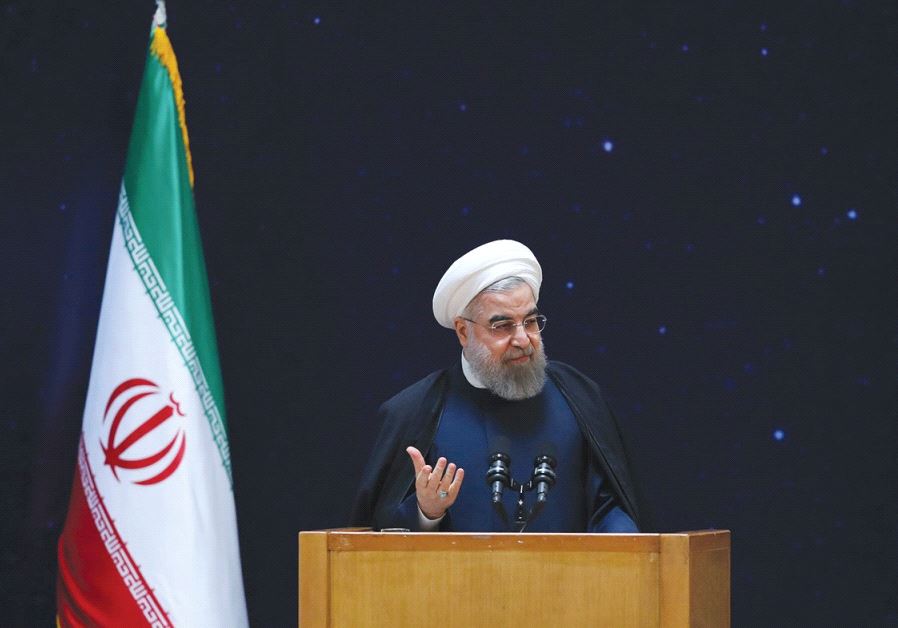Hardliners trying to sabotage nuke deal with anti-Israel rhetoric, Rouhani
In 2016, a ballistic missile test was conducted by Iran's Revolutionary Guards in which anti-Israel slogans were written in Hebrew on the missiles.
 IRANIAN PRESIDENT Hassan Rouhani speaks in Tehran.Updated:
IRANIAN PRESIDENT Hassan Rouhani speaks in Tehran.Updated: